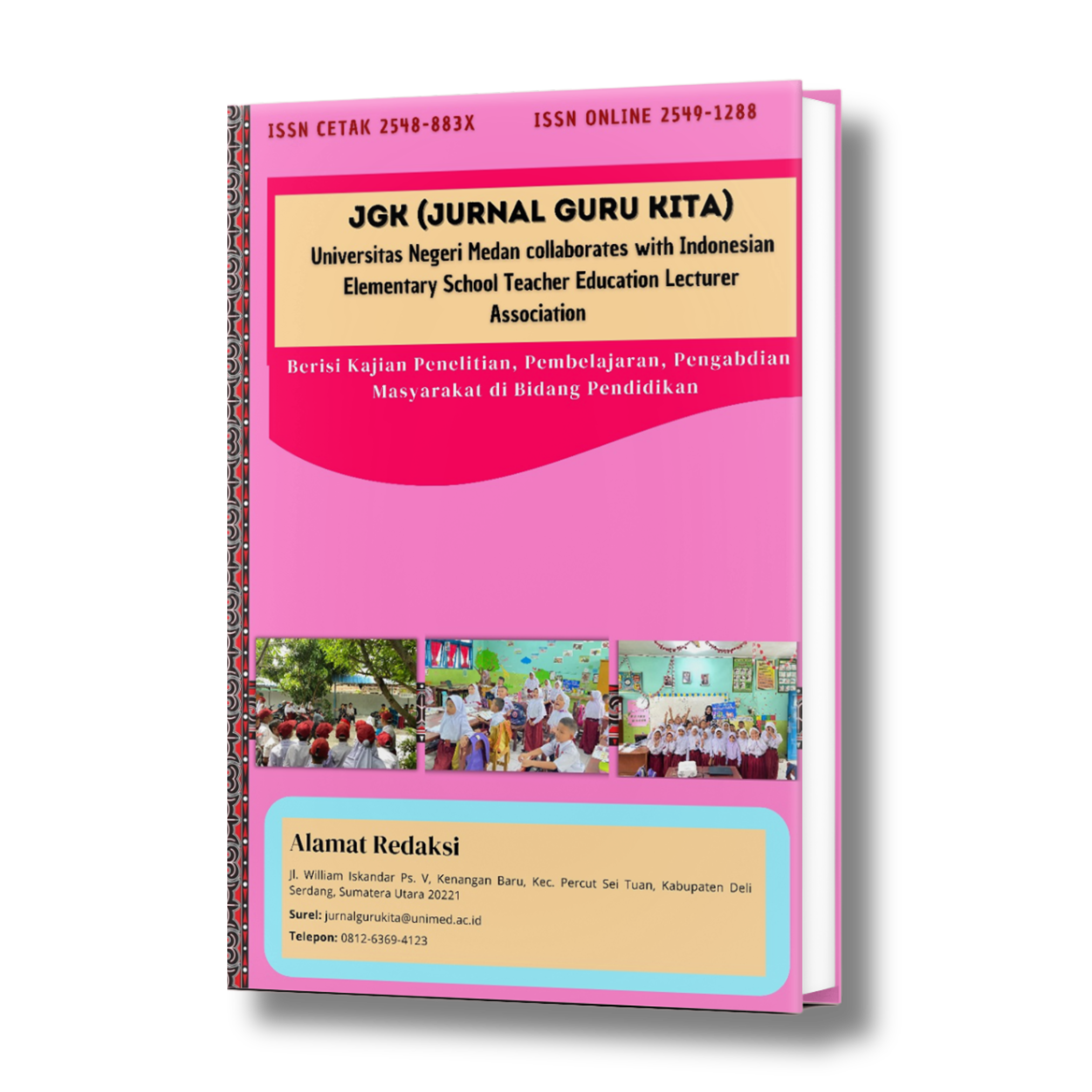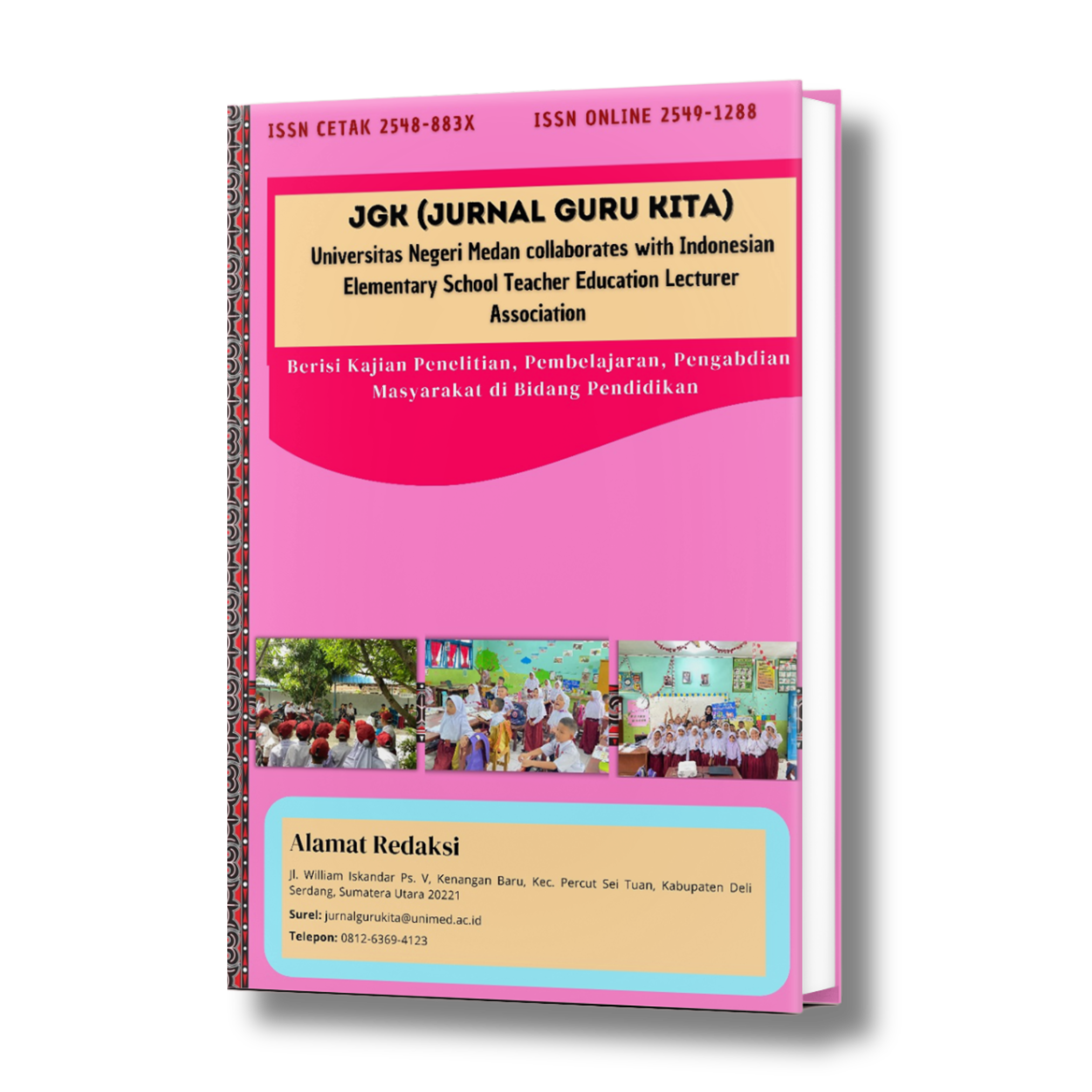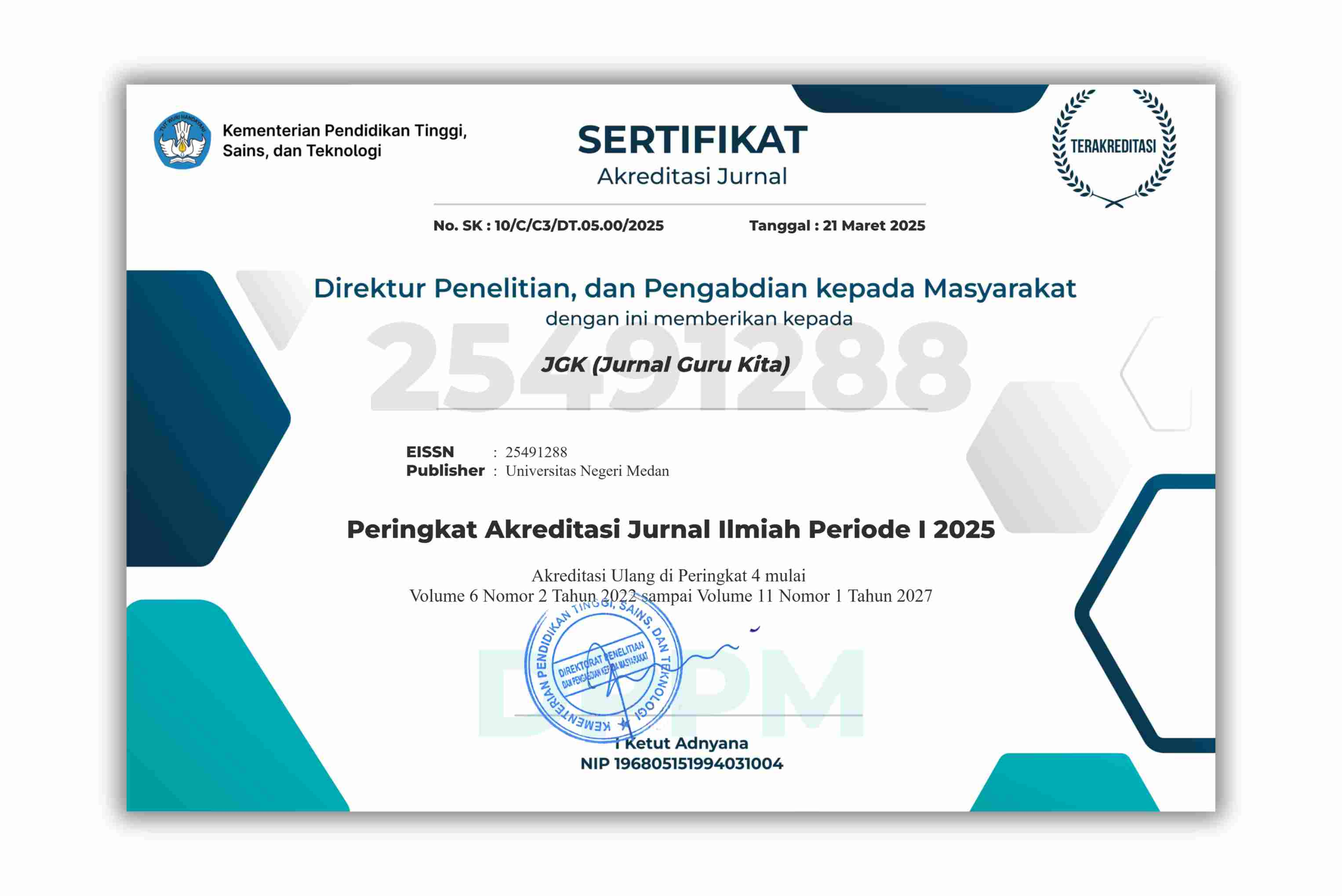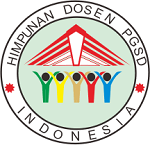Strategi Sekolah dalam Mencegah Bullying antar Peserta Didik di SMP Negeri 20 Palembang
DOI:
https://doi.org/10.24114/jgk.v9i4.65023Keywords:
Bullying, Pencegahan, Kebijakan, Lingkungan SekolahAbstract
Bullying di lingkungan sekolah merupakan penyimpangan moral yang memiliki dampak negatif pada perkembangan peserta didik. Penelitian ini bertujuan menganalisis strategi sekolah dalam mencegah bullying di SMP Negeri 20 Palembang. Menggunakan pendekatan kualitatif dengan metode studi kasus, penelitian ini melibatkan kepala sekolah, wakil kepala sekolah bidang kesiswaan, wali kelas, tim pencegahan bullying, serta peserta didik sebagai korban dan pelaku, serta peserta didik yang menjadi saksi dan berada dalam kebijakan sekolah sebagai member check. Data dikumpulkan melalui wawancara, observasi, dan dokumentasi, dengan member check dari saksi bullying serta peserta didik yang terlibat dalam kebijakan sekolah. Hasil penelitian menunjukkan bahwa sekolah telah menerapkan kebijakan anti-bullying melalui regulasi tertulis, sistem pelaporan yang mudah diakses, serta sosialisasi dan penyuluhan dan interaksi yang baik antara guru dengan peserta didik. Implementasi Projek Penguatan Profil Pelajar Pancasila (P5) turut membentuk karakter peserta didik agar lebih menghargai dan menghormati satu sama lain. Dari lima indikator yang dianalisis, kebijakan sekolah yang komprehensif dan sistem pelaporan yang jelas menjadi strategi paling efektif, didukung oleh interaksi positif antara guru dan peserta didik. Meskipun upaya pencegahan bullying telah berjalan dengan baik, peningkatan kesadaran terhadap bullying verbal masih diperlukan.References
Abhilash, P. C. (2021). Restoring the Unrestored: Strategies for Restoring Global Land during the UN Decade on Ecosystem Restoration (UN-DER). Land, 10(2), 201. https://doi.org/10.3390/land10020201
Aitchison, G. (2022). Fragility as Strength: The Ethics and Politics of Hunger Strikes*. Journal of Political Philosophy, 30(4), 535–558. https://doi.org/10.1111/jopp.12261
Andrews, N. C. Z., Cillessen, A. H. N., Craig, W., Dane, A. V., & Volk, A. A. (2023). Bullying and the Abuse of Power. International Journal of Bullying Prevention, 5(3), 261–270. https://doi.org/10.1007/s42380-023-00170-0
Appel-Meulenbroek, R., & Danivska, V. (2021). A Handbook of Theories on Designing Alignment between People and the Office Environment. Routledge. https://doi.org/10.1201/9781003128830
Armitage, R. (2021). Bullying in children: impact on child health. BMJ Paediatrics Open, 5(1), e000939. https://doi.org/10.1136/bmjpo-2020-000939
Bjereld, Y., Thornberg, R., & Hong, J. S. (2024). Why don’t all victims tell teachers about being bullied? A mixed methods study on how direct and indirect bullying and student-teacher relationship quality are linked with bullying disclosure. Teaching and Teacher Education, 148, 104664. https://doi.org/10.1016/j.tate.2024.104664
Brown, J., Keesler, J., Karikari, I., Ashrifi, G., & Kausch, M. (2022). School Principals Putting Bullying Policy to Practice. Journal of Interpersonal Violence, 37(1–2), NP281–NP305. https://doi.org/10.1177/0886260520914553
Burger, C., Strohmeier, D., & Kollerová, L. (2022). Teachers Can Make a Difference in Bullying: Effects of Teacher Interventions on Students’ Adoption of Bully, Victim, Bully-Victim or Defender Roles across Time. Journal of Youth and Adolescence, 51(12), 2312–2327. https://doi.org/10.1007/s10964-022-01674-6
Chang, V. (2021). Inconsistent Definitions of Bullying: A Need to Examine People’s Judgments and Reasoning about Bullying and Cyberbullying. Human Development, 65(3), 144–159. https://doi.org/10.1159/000516838
Christensen, M., & Evans‐Murray, A. (2021). Gaslighting in nursing academia: A new or established covert form of bullying? Nursing Forum, 56(3), 640–647. https://doi.org/10.1111/nuf.12588
Chu, X., & Chen, Z. (2025). The Associations Between Parenting and Bullying Among Children and Adolescents: A Systematic Review and Meta-Analysis. Journal of Youth and Adolescence, 54(4), 928–954. https://doi.org/10.1007/s10964-024-02108-1
Curren, R. (2022). Handbook of Philosophy of Education. Routledge. https://doi.org/10.4324/9781003172246
Direktorat Sekolah Dasar, Direktorat Jenderal Pendidikan Anak Usia Dini, P. D. (2020). Buku Pedoman Pencegahan Dan Penanggulangan Tindak Kekerasan. Kementerian Pendidikan dan Kebudayaan.
El Zaatari, W., & Maalouf, I. (2022). How the Bronfenbrenner Bio-ecological System Theory Explains the Development of Students’ Sense of Belonging to School? Sage Open, 12(4). https://doi.org/10.1177/21582440221134089
Fisher, D. N., Kilgour, R. J., Siracusa, E. R., Foote, J. R., Hobson, E. A., Montiglio, P., Saltz, J. B., Wey, T. W., & Wice, E. W. (2021). Anticipated effects of abiotic environmental change on intraspecific social interactions. Biological Reviews, 96(6), 2661–2693. https://doi.org/10.1111/brv.12772
Giletta, M., Choukas-Bradley, S., Maes, M., Linthicum, K. P., Card, N. A., & Prinstein, M. J. (2021). A meta-analysis of longitudinal peer influence effects in childhood and adolescence. Psychological Bulletin, 147(7), 719–747. https://doi.org/10.1037/bul0000329
Green, M. J., Mierzwinski, M. F., & Haines Lyon, C. (2025). Conceptualising and navigating bullying in English secondary schools: a figurational analysis of power imbalances in physical education. Sport, Education and Society, 30(3), 340–352. https://doi.org/10.1080/13573322.2024.2315175
Guillemaud, M., Chavez, M., Kobeissy, F., Vezzani, A., Jimenez, A. D., Basha, M. M., Batra, A., Demeret, S., Eka, O., Eschbach, K., Foreman, B., Gaspard, N., Gerard, E. E., Gofton, T. E., Haider, H. A., Hantus, S. T., Howe, C. L., Jongeling, A., Kalkach-Aparicio, M., … Hanin, A. (2025). Identification of Distinct Biological Groups of Patients With Cryptogenic NORSE via Inflammatory Profiling. Neurology Neuroimmunology & Neuroinflammation, 12(4). https://doi.org/10.1212/NXI.0000000000200403
Helka, A. M., Wójcik, M., Dukała, K., Kabzińska, J., Piaskowska, O., & Piesiewicz, P. (2024). To tell or not to tell about bullying—New insights from the study on the perceptions of criminal sanctioning, anticipation of school punishment, agency, and trust toward school staff. Behavioral Sciences & the Law, 42(6), 684–700. https://doi.org/10.1002/bsl.2688
Hu, D., Zhou, S., Crowley-McHattan, Z. J., & Liu, Z. (2021). Factors That Influence Participation in Physical Activity in School-Aged Children and Adolescents: A Systematic Review from the Social Ecological Model Perspective. International Journal of Environmental Research and Public Health, 18(6), 3147. https://doi.org/10.3390/ijerph18063147
Hu, X., Sui, H., Geng, X., & Zhao, L. (2024). Constructing a teacher portrait for the artificial intelligence age based on the micro ecological system theory: A systematic review. Education and Information Technologies, 29(13), 16679–16715. https://doi.org/10.1007/s10639-024-12513-5
Izadi, M., & Hart, R. (2024). The influence of the physical environment on social behavior, school climate, and bullying in schools. Children’s Geographies, 22(1), 66–81. https://doi.org/10.1080/14733285.2023.2232751
Kapitanoff, S., & Pandey, C. (2024). The Content of Verbal Bullying and Emotional Reactions Among Middle-School Students. Child & Youth Care Forum, 53(6), 1311–1332. https://doi.org/10.1007/s10566-024-09796-7
Kemendikbud, K. (2021). Perundungan / Bullying Yuk ! Perundungan / Bullying Yuk ! https://id.z-library.se/book/21404584/64bccb/stop-perundunganbullying-yuk.html
Khaleel, N., Alhosani, M., & Duyar, I. (2021). The Role of School Principals in Promoting Inclusive Schools: A Teachers’ Perspective. Frontiers in Education, 6. https://doi.org/10.3389/feduc.2021.603241
Laursen, B., & Veenstra, R. (2021). Toward understanding the functions of peer influence: A summary and synthesis of recent empirical research. Journal of Research on Adolescence, 31(4), 889–907. https://doi.org/10.1111/jora.12606
Longobardi, C., Settanni, M., Lin, S., & Fabris, M. A. (2021). Student–teacher relationship quality and prosocial behaviour: The mediating role of academic achievement and a positive attitude towards school. British Journal of Educational Psychology, 91(2), 547–562. https://doi.org/10.1111/bjep.12378
Lukman, L., Marsigit, M., Istiyono, E., Kartowagiran, B., Retnawati, H., Kistoro, H. C. A., & Putranta, H. (2021). Effective teachers’ personality in strengthening character education. International Journal of Evaluation and Research in Education (IJERE), 10(2), 512. https://doi.org/10.11591/ijere.v10i2.21629
Maemunah, M., Sakban, A., & Kuniati, Z. (2023). Peran Guru PPKn Melalui Pembimbingan Intensif Sebagai Upaya Pencegahan Bullying di Sekolah. CIVICUS : Pendidikan-Penelitian-Pengabdian Pendidikan Pancasila Dan Kewarganegaraan, 11(1), 43. https://doi.org/10.31764/civicus.v11i1.16762
Margolis, J., & Amanbekova, D. (2023). Social Media and Cyberbullying. In Teens, Screens, and Social Connection (pp. 79–101). Springer International Publishing. https://doi.org/10.1007/978-3-031-24804-7_6
Marhaely, S., Purwanto, A., Aini, R. N., Asyanti, S. D., Sarjan, W., & Paramita, P. (2024). Literature review: Model edukasi upaya pencegahan bullying untuk sekolah. Jurnal Kesehatan Tambusai, 5(1), 826–834.
Menabò, L., Skrzypiec, G., Slee, P., & Guarini, A. (2025). What roles matter? An explorative study on bullying and cyberbullying by using the eye‐tracker. British Journal of Educational Psychology, 95(2), 249–269. https://doi.org/10.1111/bjep.12604
Navarro, J. L., & Tudge, J. R. H. (2023). Technologizing Bronfenbrenner: Neo-ecological Theory. Current Psychology, 42(22), 19338–19354. https://doi.org/10.1007/s12144-022-02738-3
Pyżalski, J., Plichta, P., Szuster, A., & Barlińska, J. (2022). Cyberbullying Characteristics and Prevention—What Can We Learn from Narratives Provided by Adolescents and Their Teachers? International Journal of Environmental Research and Public Health, 19(18), 11589. https://doi.org/10.3390/ijerph191811589
Rahmania, T. (2024). Exploring school environmental psychology in children and adolescents: The influence of environmental and psychosocial factors on sustainable behavior in Indonesia. Heliyon, 10(18), e37881. https://doi.org/10.1016/j.heliyon.2024.e37881
Russo, C., Zagrean, I., Cavagnis, L., Cristalli, S., Valtulini, V., Danioni, F., & Barni, D. (2025). The Relationship Between Kindness and Transgressive Behaviors in Adolescence: The Moderating Role of Self-Importance of Moral Identity. Adolescents, 5(3), 40. https://doi.org/10.3390/adolescents5030040
Sakban, A., & Sundawa, D. (2023). Character Education : Direction and Priority for National Character Development in Indonesia. Jurnal Kependidikan: Jurnal Hasil Penelitian Dan Kajian Kepustakaan Di Bidang Pendidikan, Pengajaran Dan Pembelajaran, 9(3), 794. https://doi.org/10.33394/jk.v9i3.7843
Sakroni. (2025). Bullying in education from the perspective of ecological systems theory: a systematic review literature. Journal of Family Social Work, 28(2), 55–71. https://doi.org/10.1080/10522158.2025.2464961
Smith, I. H., & Kouchaki, M. (2021). Ethical Learning: The Workplace as a Moral Laboratory for Character Development. Social Issues and Policy Review, 15(1), 277–322. https://doi.org/10.1111/sipr.12073
Sobkin, V. S., & Fedotova, A. V. (2021). Adolescents on Social Media: Aggression and Cyberbullying. Psychology in Russia: State of the Art, 14(4), 186–201. https://doi.org/10.11621/pir.2021.0412
Sugiyono, S. (2019). Metode Penelitian Pendidikan (Kuantitatif, Kualitatif, Kombinasi, R&D dan Penelitian Pendidikan). CV. Alfabeta.
Sugiyono, S. (2022). Metode Penelitian Kuantitatif, Kualitatif Dan R&D. Alfabeta.
Wójcik, M., & Rzeńca, K. (2021). Disclosing or Hiding Bullying Victimization: A Grounded Theory Study From Former Victims’ Point of View. School Mental Health, 13(4), 808–818. https://doi.org/10.1007/s12310-021-09447-5
Yosep, I., Fitria, N., Mardhiyah, A., Pahria, T., Yamin, A., & Hikmat, R. (2024). Experiences of bullying among nursing students during clinical practice: a scoping review of qualitative studies. BMC Nursing, 23(1), 832. https://doi.org/10.1186/s12912-024-02439-1
Zhong, L., Ying, Y., Zeng, C., Li, J., & Li, Y. (2024). Exploring the interplay of parenting styles, basic empathy, domestic violence, and bystander behavior in adolescent school bullying: a moderated mediation analysis. Frontiers in Psychiatry, 15. https://doi.org/10.3389/fpsyt.2024.1452396
Downloads
Published
How to Cite
Issue
Section
License
Copyright (c) 2025 Aqilah Azmi, Umi Chotimah

This work is licensed under a Creative Commons Attribution-ShareAlike 4.0 International License.
Authors published with the JGK (Jurnal Guru Kita) agree to the following terms:
- Authors retain copyright and grant the journal the right of first publication with the work simultaneously licensed under a Creative Commons Attribution License (CC BY-SA 4.0) that allows others to share the work with an acknowledgment of the work's authorship and initial publication in this journal.
- Authors are able to enter into separate, additional contractual arrangements for the non-exclusive distribution of the journal's published version of the work (e.g., post it to an institutional repository or publish it in a book), with an acknowledgment of its initial publication in this journal.
- Authors are permitted and encouraged to post their work online (e.g., in institutional repositories or on their website) prior to and during the submission process, as it can lead to productive exchanges, as well as earlier and greater citation of published work. (See The Effect of Open Access)

























